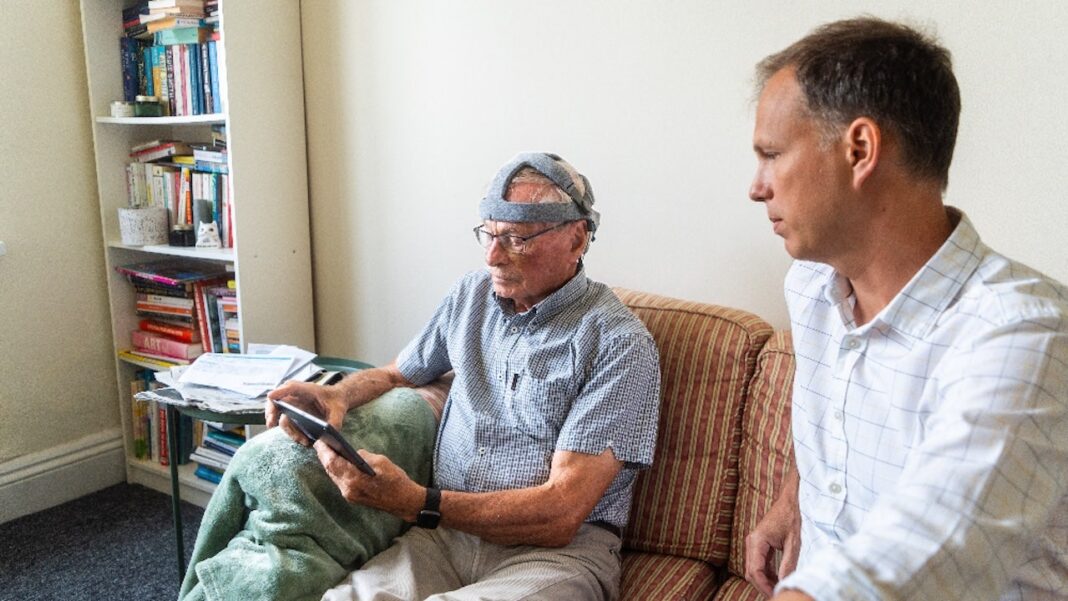NEWNow you can hearken to Fox Information articles!
A brand new brainwave take a look at may detect early indicators of Alzheimer’s years earlier than prognosis — in simply three minutes.
That’s based on researchers on the College of Bathtub and the College of Bristol, who not too long ago examined the brand new expertise — referred to as Fastball EEG — in sufferers’ houses.
The three-minute take a look at information electrical exercise within the mind because the particular person appears at a sequence of photographs. It’s designed to choose up on indicators of gentle cognitive impairment (MCI), which regularly precedes Alzheimer’s.
DEMENTIA RISK SLASHED WITH ONE COMMON HEALTH INTERVENTION, STUDY FINDS
As a result of Fastball is a “passive” EEG take a look at, it mechanically picks up on the mind’s responses with out requiring the contributors to reply questions or recall info.
This makes it much less more likely to be influenced by elements equivalent to anxiousness, schooling, tradition or language, based on examine lead Dr. George Stothart, a cognitive neuroscientist within the Division of Psychology on the College of Bathtub.
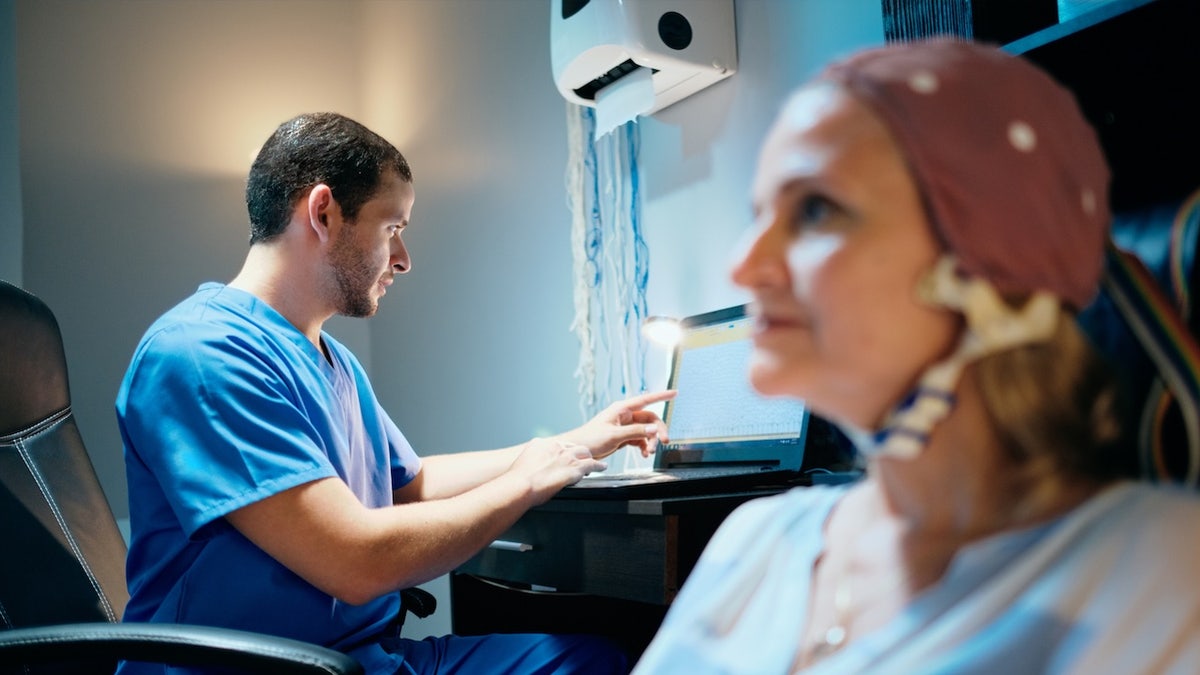
A brand new brainwave take a look at may detect early indicators of Alzheimer’s years earlier than prognosis — in simply three minutes. (iStock)
“Fastball is delicate to each pre-diagnosed Alzheimer’s illness and people at very excessive danger of growing it,” Stothart informed Fox Information Digital. “Importantly, EEG information assortment for Fastball is solely possible in folks’s houses, making it a sensible instrument for real-world use.”
Within the trial, 53 sufferers with gentle cognitive impairment and 54 wholesome older adults have been examined with the instrument to gauge their reminiscence expertise. They have been then re-tested after one 12 months.
OMEGA-3 MAY HELP TO PROTECT WOMEN FROM ALZHEIMER’S DISEASE, NEW STUDY SAYS
The sufferers with MCI have been discovered to have “considerably decreased” memory-related mind responses in comparison with these with none cognitive decline.
The findings have been printed within the journal Mind Communications.
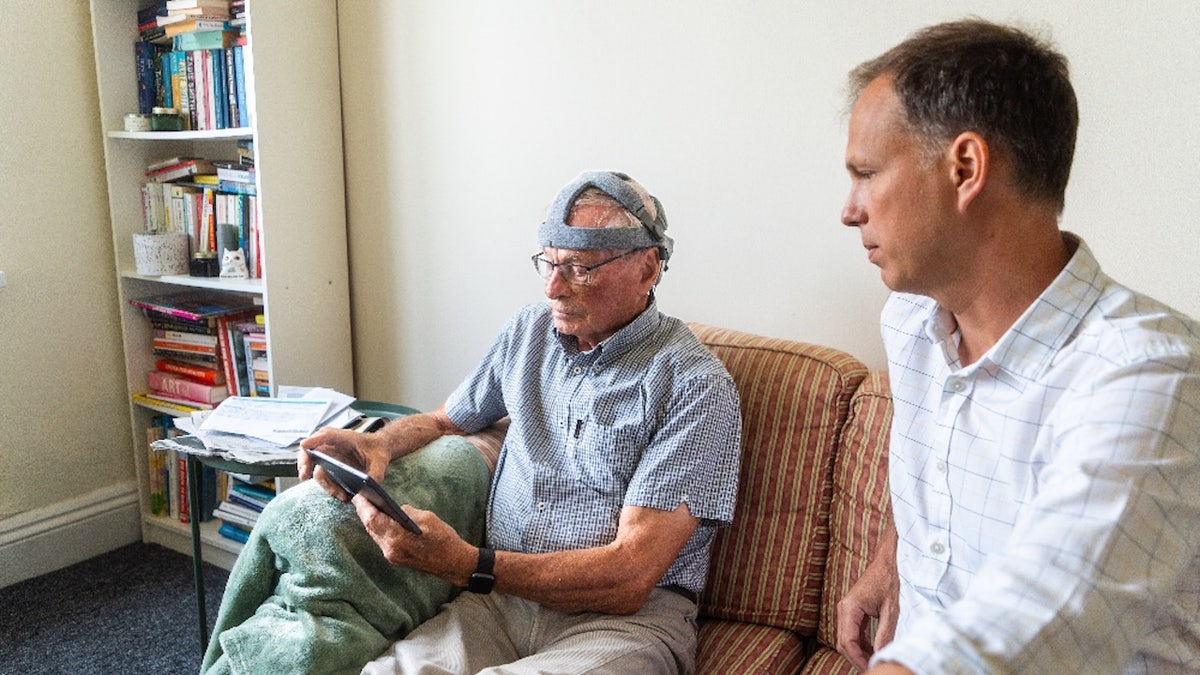
John Stennard, left, a wholesome volunteer, takes the Fastball take a look at in his house, with Dr. George Stothart from the College of Bathtub. (College of Bathtub)
“We have been pleasantly shocked by the test-retest reliability in wholesome older adults,” Stothart mentioned. “Within the one-year follow-up, measurements remained secure, indicating that for wholesome older adults, Fastball gives constant outcomes over time.”
The primary limitation, based on Stothart, is that the researchers didn’t have biomarker information for contributors with MCI attributable to value and useful resource constraints.
“It might be useful to research how this expertise may complement different diagnostic strategies.”
“Nevertheless, our bigger ongoing scientific validation research within the U.Okay. and U.S., every involving 1,000 sufferers, now embrace intensive biomarker protection,” he famous.
The hope is that the instrument may be rolled out to be used in medical doctors’ workplaces, reminiscence clinics or houses, serving to to allow earlier Alzheimer’s diagnoses.
STUDY REVEALS WHY ‘SUPER AGERS’ MAINTAIN ‘OUTSTANDING MEMORY’ INTO THEIR 80S
That would enable sufferers to get earlier entry to key Alzheimer’s medication, like donanemab and lecanemab, that are best earlier within the illness development, researchers mentioned.
“Sufferers themselves don’t obtain the Fastball outcomes immediately,” Stothart mentioned. “As an alternative, outcomes are offered to the clinician, who integrates them right into a broader diagnostic evaluation.”
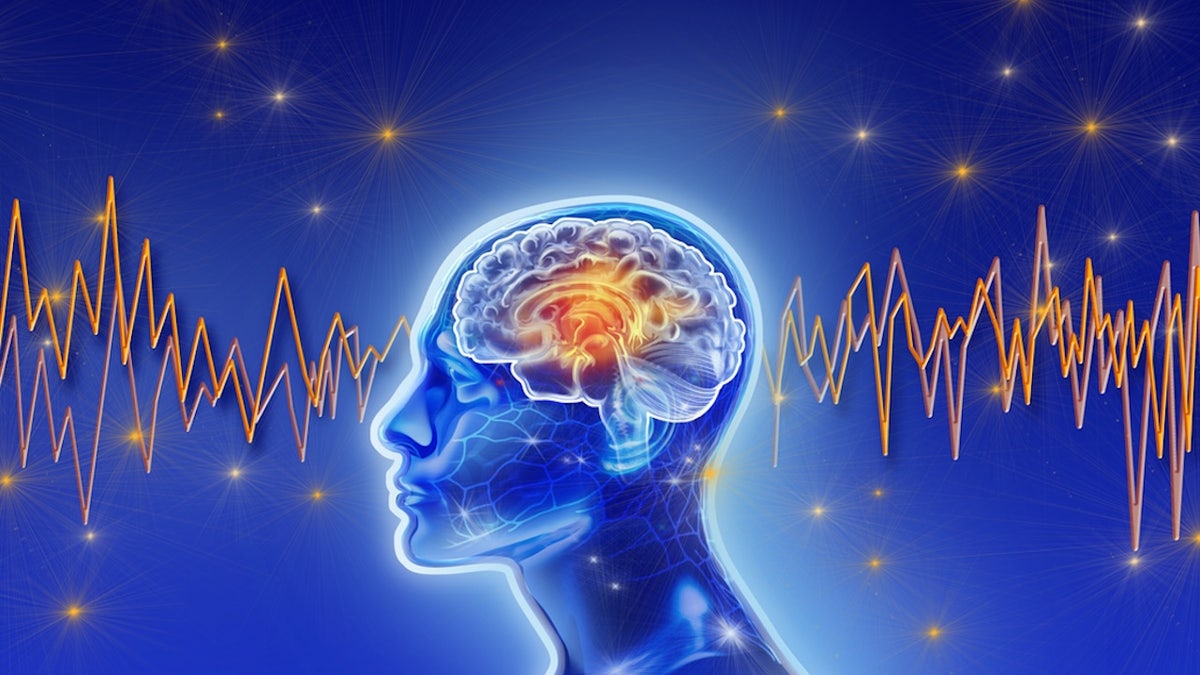
The three-minute take a look at information electrical exercise within the mind because the particular person appears at a sequence of photographs. It’s designed to choose up on indicators of gentle cognitive impairment (MCI). (iStock)
“Fastball is one other useful instrument that clinicians can select to incorporate as a part of their diagnostic battery.”
Christopher Weber, Ph.D., senior director of worldwide science initiatives on the Alzheimer’s Affiliation in Chicago, mentioned this expertise has potential as a non-invasive instrument for the detection of reminiscence modifications that would point out the early levels of Alzheimer’s illness.
CLICK HERE TO GET THE FOX NEWS APP
“Nevertheless, extra analysis is required earlier than this might be thought of for inclusion within the diagnostic toolbox for Alzheimer’s,” Weber, who was not concerned within the examine, informed Fox Information Digital.
“This consists of affirmation of those findings in bigger, extra consultant examine populations, over longer durations of time, the place exams are carried out to substantiate that examine contributors have mind modifications associated to Alzheimer’s.”
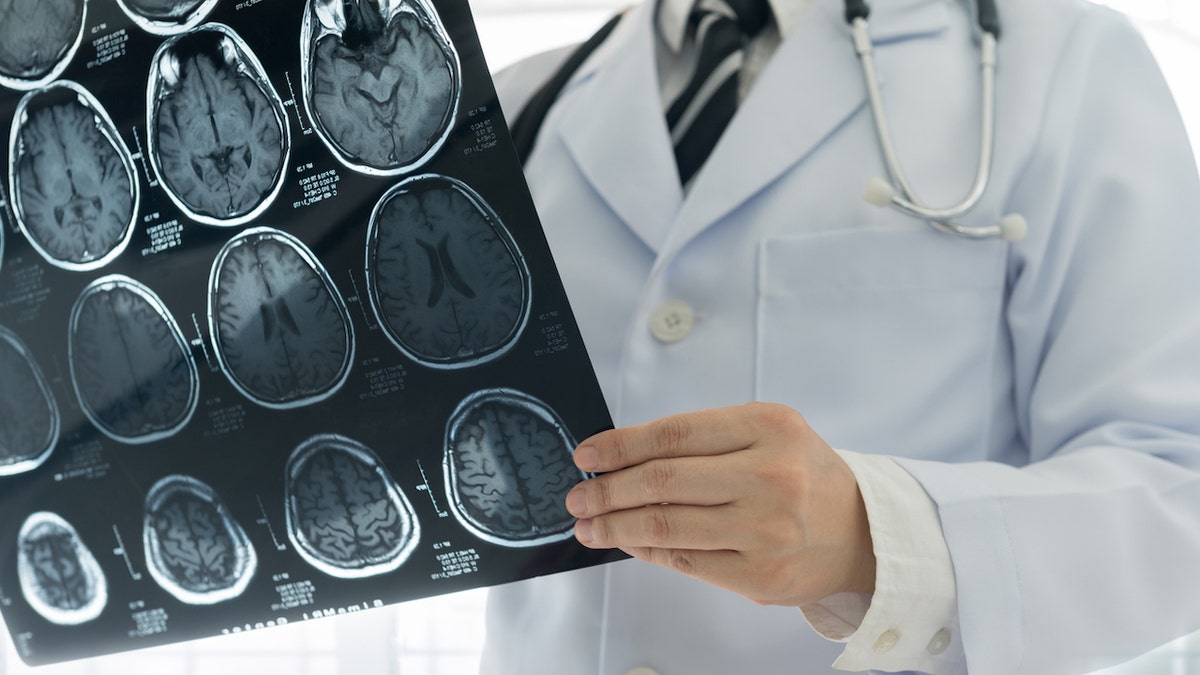
The hope is that the instrument may be rolled out to be used in medical doctors’ workplaces, reminiscence clinics or houses, serving to to allow earlier Alzheimer’s diagnoses. (iStock)
Weber additionally identified that this expertise doesn’t seem to find out the reason for the reminiscence loss.
“Consequently, it’s unclear what the outcomes of this take a look at might imply about your Alzheimer’s danger and/or your well being standing,” he mentioned. “So even when this tech proves itself with additional analysis, it’s nonetheless possible that extra exams, disease-related biomarkers or imaging of the mind, would even be wanted to tell remedy or danger discount.”
CLICK HERE TO SIGN UP FOR OUR HEALTH NEWSLETTER
Regardless of the constraints, Weber mentioned Fastball might show to be useful for preliminary screening or to tell a affected person’s conversations with their physician.
“And it might be useful to research how this expertise may complement different diagnostic strategies, equivalent to PET scans, blood exams and ‘paper-and-pencil’ cognitive assessments,” he added.

PET scans, blood exams and “paper-and-pencil” cognitive assessments are presently used to watch for Alzheimer’s signs. (iStock)
Any future use of at-home screening or testing needs to be carried out in a “cautious and managed method,” Weber suggested.
He added, “When contemplating any Alzheimer’s- or dementia-related testing, it is very important have a dialog along with your healthcare supplier to see if you’re a candidate.”
For more Health articles, visit www.foxnews.com/health
The examine was funded by the Academy of Medical Sciences and supported by dementia analysis charity BRACE.

